Close but No Cigar
Archery Trade Association 08.04.12
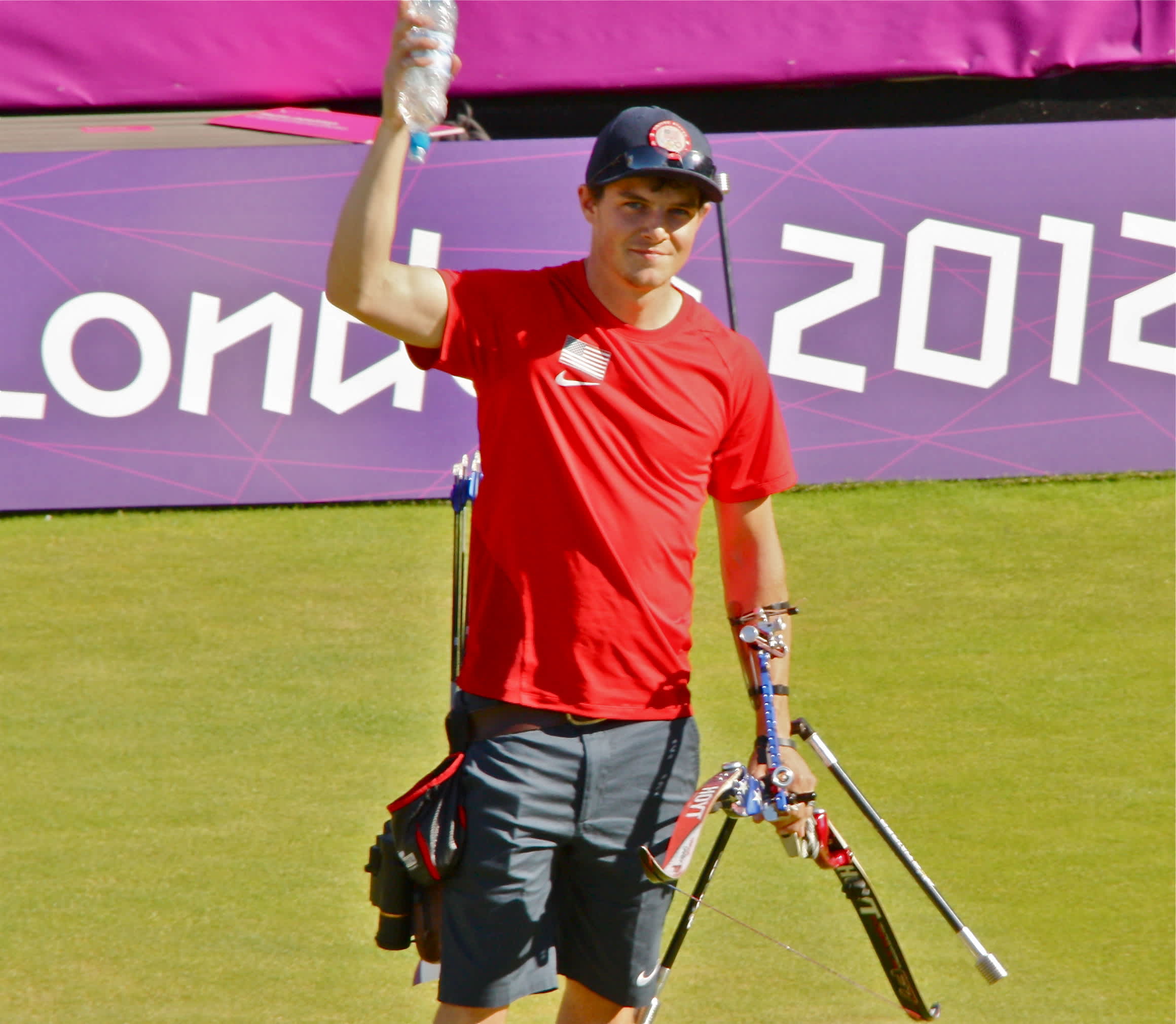
“Close” is a very bad word in sports, yet it’s the story of most athletes’ competitive lives. Where sports fans always focus on the winners, the vast majority of participants finish with a number by their name like “6th,” “10th,” or (the worst number in the Olympic games) “4th.”
To fans in the crowd, the television audience and readers of sports pages, these elite athletes are nameless, faceless young people in colorful clothing. They provide context around the featured stories of Michael Phelps, Gabby Douglas and the rest of Olympic champions the media love to tout.
Janet and I have watched every American archer compete here at the Olympics; and we’ve made all the noise we can. Luckily we’ve sat with USA’s No. 1 archery fan and assistant archery coach Guy Krueger who tirelessly cheers on our shooters. The cheering in the Lord’s Cricket Ground archery venue has been nonstop. And the Koreans have, by far, the largest and most vocal contingent. As for flag waving, chanting and yelling encouragement; Mexico, Italy, and — to a lesser extent — France do their archers proud. British fans go wild over their shooters, but they also take sides in the matches, which adds an interesting twist.

As the last week unfolded, the American men and women archers fell short of their expectations. All told, we had one archer get beyond the round of 32. Jake Kaminski lost in the first round. Jacob Wukie, Brady Ellison, Jenny Nichols and Miranda Leek lost in the second round. The USA archery star turned out to be five-time Olympian Khatuna Lorig who ended up infourth place. For American archery, the games were a great success. We came home with team silver, an individual fourth place finish and the reputation of a team everyone else wants to beat.
What I liked most about our team was the way they carried themselves. They walked out with great confidence, waved to the crowds with genuine appreciation and acknowledged their competitors, win or lose. They were very disappointed with their results and, to add to their pain, their losses were a major gain for those who beat them.
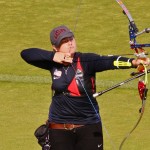
That was one difficult aspect of sitting in the stands: there was no question a portion of the fans wanted each American to lose. This added to the already heavy burden of carrying the hopes of a country that only measures success in gold medals.
After watching our shooters, I was only sorry that every American couldn’t see what I saw.
Jake Kaminski has a great grin and acts like he enjoys every minute of every day. He looks like he’s never met a person he didn’t like, but he shows flashes of great pain when his arrows don’t fly true;
Miranda Leek has the sweetest smile but, when her bow is at full draw, her face is a study in intensity. While she looks like the quiet piano player she is, her competitive spirit sits just below the surface;

Jacob Wukie, the oldest archer on the men’s team,looks the part of the older brother. His smile is more reserved, but feelings for his competitors appear genuine, even when he had to shake the hand of someone he felt he should have beaten;
Jenny Nichols is a warm and sincere competitor, but no one should mistake her polite style as a concession. In her eyes, during the last minutes of her matches, you can see — , in her mind — she’s never really been beaten by anyone;
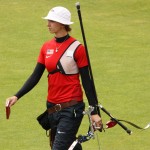
Brady Ellison is the archer who’s embraced the role of media darling, despite the enormous pressure that comes with that burden. He entered the Olympics as the top-ranked archer in the world and was never the crowd favorite; except for those of us who could not have been more proud of his conduct and sportsmanship; and,
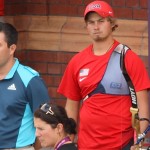
Khatuna Lorig was our most experienced Olympian. This likely explains her exuberance during her matches. She was clearly enjoying the moment. From her animation during the walk on and off the venue to her warm exchanges with her coach KiSik Lee, she had a quiet determination hidden behind the sunglasses she wore while shooting, rain or shine. Her deadly shooting demeanor reminded me of the “straw boss” in “Cool Hand Luke,” who wore mirror shades while giving off a tough aura. Difference is, Khatuna’s look wasn’t all image. It was the eventual gold medalist who ultimately ended her Olympic dream.
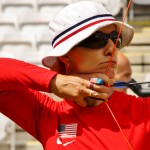
I’m sure there was an unfair share American bowhunters who watched the archery competition on TV, leaned back, and let their friends and family know, “I could do that.” OK, come on down. Put a target with a circle on it the size of a CD, place the target on the goal line at your local football field, walk back to the 25 yard line on the opposite end of the field and then shoot until you put 15 arrows into the circle. Oh, and do it when the world is watching.
Welcome to Olympic archery!
This blog is republished with permission from the Archery Trade Association. To read Jay’s updates from London in real time, follow the Archery Trade Association’s blog here.

